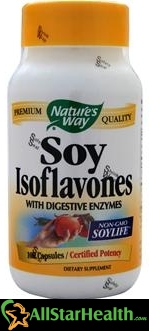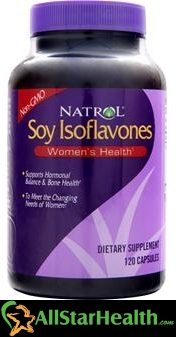Soy and Breast Cancer: Protection or Risk?

Soy foods and soy supplements have always had their supporters and detractors. Among the benefits attributed to soy are beneficial effects on hormones including possible reductions in the risk of breast cancer. Controversy has persisted over this claim, because of some evidence that soy’s hormonal effects may actually increase the risk of breast cancer in some circumstances. For better or worse, millions of menopausal and peri-menopasual women use soy every day to promote and protect their health. Find out what the Loma Linda University’s Department of Nutrition had to say about these ideas in today’s AllStarHealth blog.
“Perspectives on the soy-breast cancer relation.’ is the title of a paper recently published by the Department of Nutrition at the School of Public Health at Loma Linda University. In it, the authors focus on the most widely-studied soy nutrients with respect to breast cancer, soy isoflavones. They suggest that for soy to have protective effects against breast cancer, it must be consumed early in life, possibly because its mode of action involves cell differentiation. According to the authors, this may explain why studies using soy products in older individuals have failed to show consistent, significant effects.
As for soy isoflavones raising the risk of breast cancer, the paper lays these concerns to rest partly on the basis of the methodology of the study that aroused concern in the first place (which used surgically-altered mice with artificially-induced breast cancer). They also point out that studies of breast tissue (biopsies or density measurements) after supplementation with isoflavones are “reassuring and contrast with the proliferative effects of conventional combined hormone therapy, although understanding of the effect of soy and isoflavones on breast tissues remains imprecise.”
This perspective on the soy-breast cancer relationship should also reassure the many current users of soy isoflavone supplements including menopausal and peri- menopausal women, and those at heightened risk of breast cancer. Of course, common sense still applies and since there are several types of breast cancer and many factors that influence risk, no woman should rely on soy to protect against it. Any woman currently dealing with breast cancer should discuss using soy with her doctor prior to doing so. Print out this blog post or the PubMed summary ahead of time and give a copy to your doctor for review, or as a great way to start the conversation.
We should point out that other benefits of soy are much less controversial such as the FDA-approved claim that 25 grams of soy protein per day is good for cardiovascular health. Or that soy protein is also one of the very best vegetarian protein sources. Soy isoflavones benefit prostate and bone health, too.
Small but significant amounts of soy isoflavones are found in all soy proteins. Some soy proteins are specially processed for high isoflavone content. Soy isoflavones are also sold as standalone supplements and are a component of other types of supplement formulas like menopause blends and bone support formulas.
- Posted in Women's Health
- No Comments





